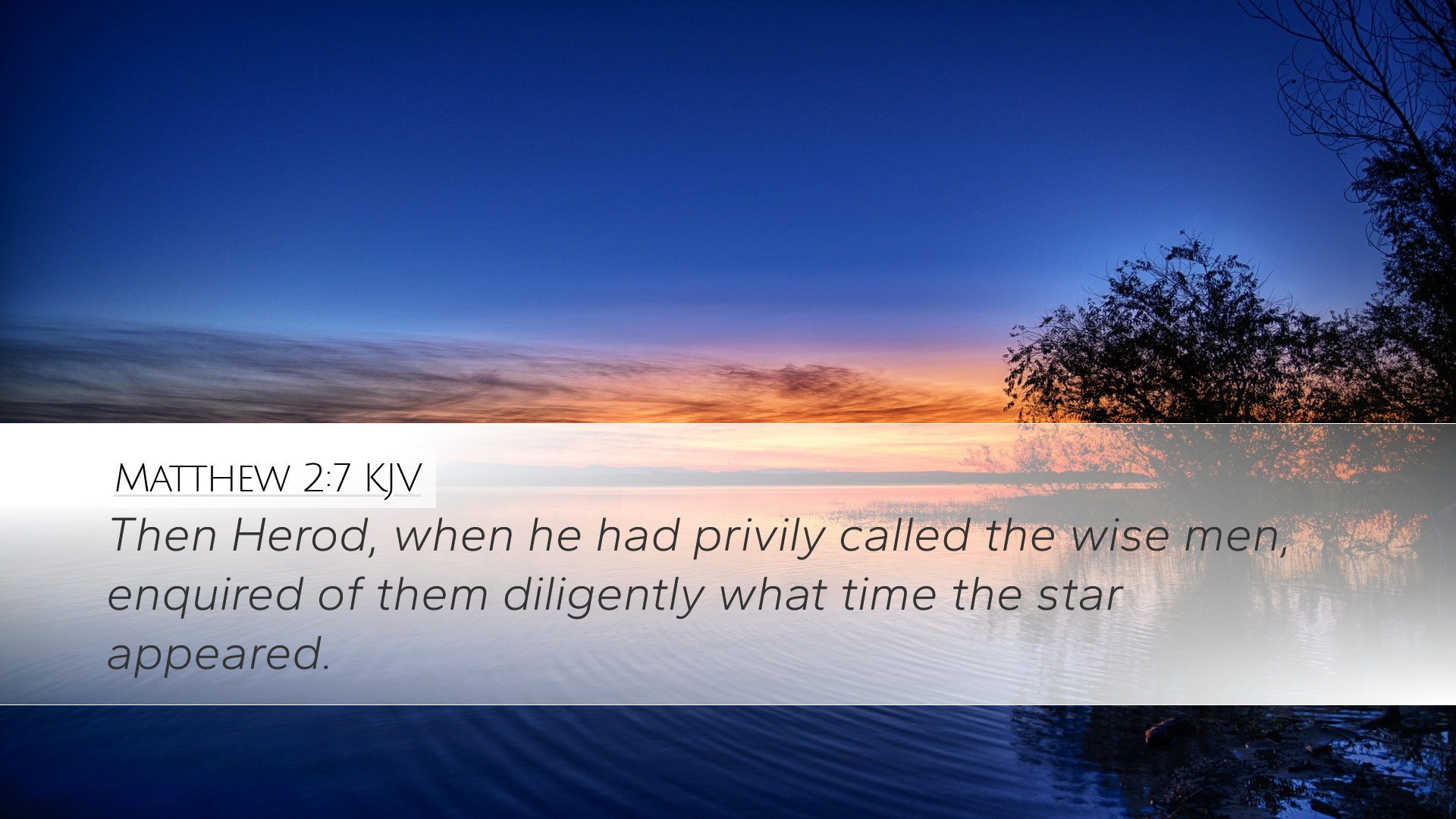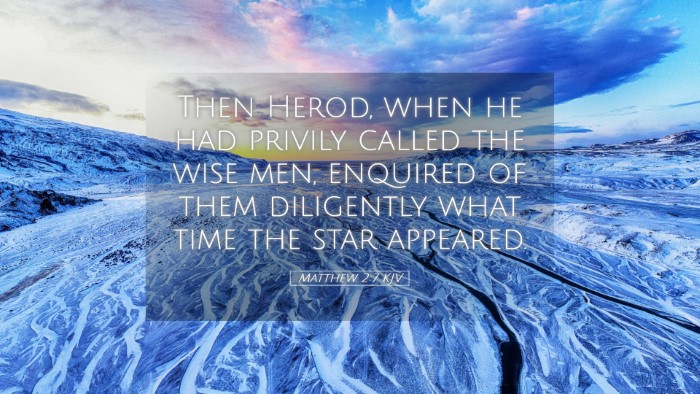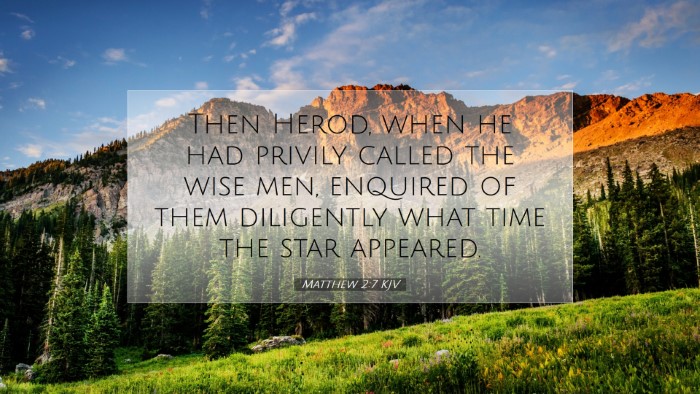Matthew 2:7 - Bible Commentary
Verse Text: "Then Herod, when he had privately called the wise men, inquired of them diligently what time the star appeared."
Introduction
The verse serves as a crucial turning point in the narrative of the nativity story, featuring King Herod's interaction with the Magi. This commentary examines the implications of Herod’s inquiry and the theological insights it offers, drawing from the works of Matthew Henry, Albert Barnes, and Adam Clarke.
Contextual Background
In the context of Matthew 2, the arrival of the Magi signifies the recognition of Christ’s birth by Gentiles, a theme that underscores God’s universal plan of salvation. This verse specifically reveals Herod’s duplicity and arrogance, foreshadowing the events that lead to the massacre of the innocents.
Herod's Character
Herod the Great is often remembered for his tyrannical rule. His private meeting with the wise men highlights his duplicity. According to Matthew Henry:
- Manipulation: Herod’s inquiry was driven by fear and a desire to maintain his power, implying that he regarded the birth of Jesus as a threat.
- Deception: He carefully crafted this meeting, demonstrating a willingness to go to great lengths to gather information.
The Role of the Wise Men
Matthew Henry notes that the wise men, or Magi, represent the seeking nature of mankind, searching for truth. Their visit is emblematic of the fulfillment of prophecy and the outreach of the gospel beyond Israel. Adam Clarke states:
- Wisdom and Revelation: The wise men's visit is a manifestation of divine revelation. They follow the star, leading them to Jesus, symbolizing the guidance of God.
- Response to Revelation: Their inquiry into the timing of the star's appearance indicates a deep desire to understand the significance of their discovery.
Herod's Inquiry
Herod’s inquiry is a strategic maneuver. Albert Barnes remarks on its significance:
- Intent of the Inquiry: Herod's intention was malevolent; he sought to know the time of the star’s appearance to understand when Jesus was born, allowing him to eliminate the threat.
- Spiritual Blindness: Despite having access to the wise men and the prophecies, Herod’s heart remained darkened, lacking the humility to recognize the Messiah.
Theological Implications
This verse opens a broader theological discourse on authority and the nature of true kingship:
- Contrast Between Kings: The arrogance of Herod contrasts sharply with the humble origin of Christ. Herod relies on manipulation, while Jesus embodies servitude and righteousness.
- God’s Sovereignty: The unfolding events demonstrate God’s sovereignty over history, including Herod’s schemes and the eventual protection of Jesus.
Conclusion
Matthew 2:7 serves as a poignant reminder of the different responses to Christ’s coming. The wise men exhibit faith and humility, seeking the newborn King, while Herod illustrates the dark side of human ambition and pride. In reflecting on this verse, pastors, students, and theologians are encouraged to examine their own motives and responses to Christ.
Reflective Questions
- What does Herod's reaction to Christ’s birth reveal about the human heart when confronted with divine authority?
- How can we, like the wise men, cultivate a heart that seeks after truth and responds to revelation?
- In what ways can we ensure that our leadership reflects Jesus' humility rather than Herod's arrogance?


